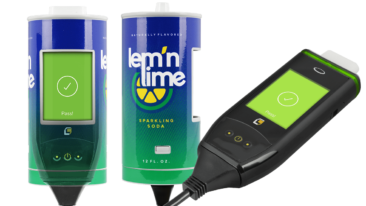
If you are having an interlock device installed on your vehicle, you need to be familiar with the rolling retest, as you will be required to perform them at random when you drive. But what is an interlock rolling retest? And what happens if you have a failed or missed rolling retest? We’re going to cover everything you need to know here in this post.
What is an Interlock Rolling Retest?
An interlock rolling retest will be required of the driver after they have passed their initial test and started to drive the car. The rolling retest must be performed and passed successfully at random times during the drive. The rolling retest is conducted in exactly the same way as the initial breathalyzer test, the only difference being that you have already begun your drive.
When the device signals for a rolling retest by beeping and/or flashing on the screen, you will be required to give a breath sample. Typically, you will have somewhere around seven minutes to give the rolling retest, however, each state is different, so make sure you understand what is required by your state. Otherwise, if you miss the rolling retest, it will show up as a missed test, which can lead to a lockout, during which you will not be allowed to drive your car for a set period of time.
The interlock rolling retest ensures that you have not had anything to drink after passing your initial test and starting your drive.
Drivers with an interlock device need to be prepared for a rolling retest within the first few minutes of their drive. State law will dictate the range at which the first rolling retest will be administered, but it will usually fall somewhere between the first five and 10 minutes of the drive.
What Happens if You Have a Missed Rolling Retest?
If you take too long to give your rolling retest breath sample, the device will give some sort of signal, such as flashing your lights, honking your car horn, and an internal siren from the device will sound, depending on your state regulations. When this occurs, you will have to pull over and submit to a retest to make the signals stop. If you fail the test at this point, the interlock device will put the car into lockdown mode for a set period of time.
What if You Fail a Rolling Retest?
What happens when you fail a rolling retest depends on why and when you fail the test. Usually, there is no need to panic, as you will be able to resume your trip after waiting for the designated time. Sometimes, something as simple as mouthwash or yeast from pizza can be enough to trigger a failed test, or perhaps there is residue from consuming alcohol the night prior.
No matter the cause, if a failed test occurs, you will have to wait a designated time, known as a lockout period, before you can test again. When you give a failed test during a rolling retest, you will need to pull over as soon as possible and shut off the ignition, then your lockout period will begin.
This lockout period will vary from state to state. Each time you give a failed test, the lockout period will extend to a longer period of time. It’s hard to calculate how long alcohol will take to leave your system, but if there are any trace amounts on your breath, the interlock device will pick it up and you won’t be able to drive, regardless of how you feel.
Can You Have a Passenger Take the Rolling Retest for You?
No. While you might think it would be easy to have a passenger blow into your interlock device for you so you can continue driving, modern interlock devices have technology that makes it impossible for someone else to blow into your device for you. Therefore, you will not be able to bypass these security measures by having a sober passenger blow into the device for you.
Is an Interlock Rolling Retest Dangerous?
You may have some concerns about blowing into your interlock device while driving, but the rolling retest is quite safe. If you’re worried about performing the test while driving, the interlock device gives you enough time (typically several minutes) to safely pull over to the side of the road and submit to the test if you aren’t comfortable performing the test while driving. And if you do take the test while driving, you never need to take your eyes off the road since the interlock will give you an audio signal to tell you whether you pass or fail the test.
Considering that the device exists to make sure you aren’t driving drunk, it is actually a very important safety measure. Visit Low Cost Interlock online for more information on interlock devices.

